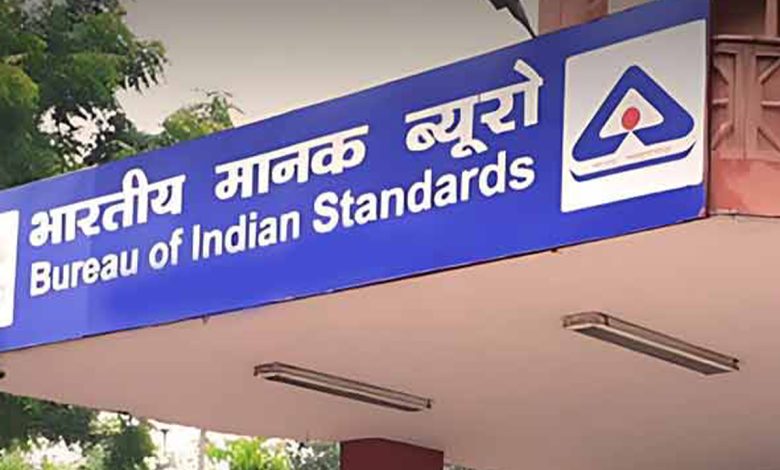Daily Current Affairs for UPSC
Learning Science via Standards
Syllabus- Government Policies and Interventions [GS paper-2]

Context- The National Standards Body of India, known as the Bureau of Indian Standards (BIS), has as of late presented an instructive program called ‘Learning Science by means of Guidelines’ for understudies.
Key Highlights
- Through the lens of standards, this initiative aims to help students comprehend various schemes, policies, and concepts.
- The initiative follows in the footsteps of a previous BIS initiative that saw the establishment of “Standards Clubs” throughout India’s educational establishments.
- Over the years, more than 4200 clubs of this kind have been established, and over one lakh students have joined them. Through these clubs, students get to interact with businesses and labs to improve standards.
“Learning Science via Standards” Initiative
- The initiative focuses on a set of lesson plans that use the Indian standards system’s laws, scientific concepts, and principles.
- Students will gain a better understanding of the initiative’s practical applications in the manufacturing, operation, and testing of various products’ quality characteristics in accordance with relevant Indian Standards.
- The subjects covered in the lesson plans are mainly products that are used in everyday life.
- They were chosen because they are relevant to education as part of the course curriculum and have industrial applications as well.
- Lesson plans will be distributed to students by BIS officials and resource staff for an interactive learning experience that will also be available on the BIS website.
- The initiative’s objective:
- The lesson plans will educate college and school students about the significance of quality and standards.
- It will give them the confidence to bravely take on real-world challenges in all of their future endeavors.
- A wide range of students, including those enrolled in schools, colleges, and technical schools, are anticipated to gain from the initiative.
India’s difficulties in maintaining standards
- Lack of Awareness: Non-compliance with standards and a lack of demand for high-quality goods result from consumers, policymakers, and manufacturers’ lack of understanding of standards.
- Lack of Compliance: Manufacturers and importers who fail to comply are a direct result of the weak enforcement of standards and regulations.
- Insufficient infrastructure: The absence of adequate testing, certification, and quality control infrastructure, such as inadequate accreditation systems, inadequate personnel, and inadequate laboratory facilities.
- Fragmented Markets: A large number of small and medium-sized enterprises (SMEs) lack the resources to meet certification and standard-setting requirements in India’s fragmented market.
- Cost: Small and medium-sized enterprises (SMEs) and startups face a significant obstacle because complying with standards and certification requirements can be costly.
- Technology Out of Date: Standards development and enforcement are challenged by the rapid pace of technological change because they must be regularly updated to keep up with technological advancements.
- Harmonization on a global scale: India faces the challenge of aligning its standards with international standards while maintaining its domestic priorities, which is necessary for global trade.
The significance of maintaining standards
- Consumer safety: By ensuring that products and services adhere to certain quality and safety standards, standards assist in safeguarding consumers’ health, safety, and well-being.
- Quality Control: Guidelines advance quality confirmation and assist with forestalling the offer of unsatisfactory or fake items.
- Innovation: Innovation and the creation of new technologies and products both benefit greatly from standards.
- Commerce and Trade: By ensuring that goods and services meet certain quality and safety standards, standards aid in domestic and international trade and commerce.
- Environment: By encouraging the use of environmentally friendly technologies and practices, standards also contribute to the promotion of sustainability and environmental protection.
- Competitiveness: By ensuring that Indian businesses’ goods and services meet international standards and are, as a result, more appealing to customers, standards can help them become more competitive.
- Health Services: The public’s health can be protected by healthcare standards that help ensure the effectiveness and safety of medical treatments, drugs, and devices.
Bureau of Indian Standards (BIS)
|
Conclusion
- It is anticipated that the proposed initiative will contribute to the development of students’ abilities to successfully engage in a variety of the country’s economic sectors.
- However, in order to achieve the desired outcomes, a multi-pronged strategy that includes raising awareness, building capacity, developing infrastructure, simplifying procedures, and working more closely with stakeholders is required.
- The ‘Learning Science via Standards’ drive is a stage towards overcoming any barrier among hypothesis and genuine utilization of science instruction.
- It will empower understudies to relate the ideas of science to their genuine applications and furthermore advance a culture of value and normalization in the country.”





.png)



